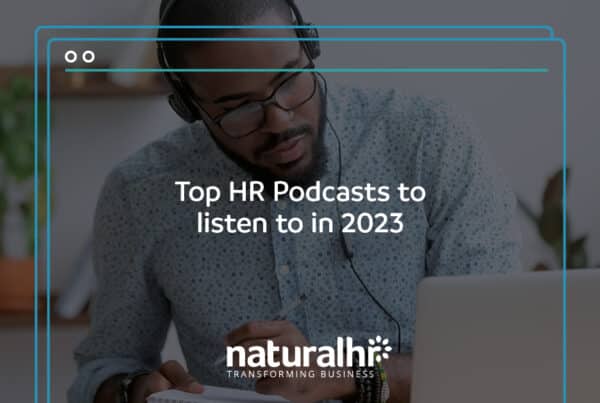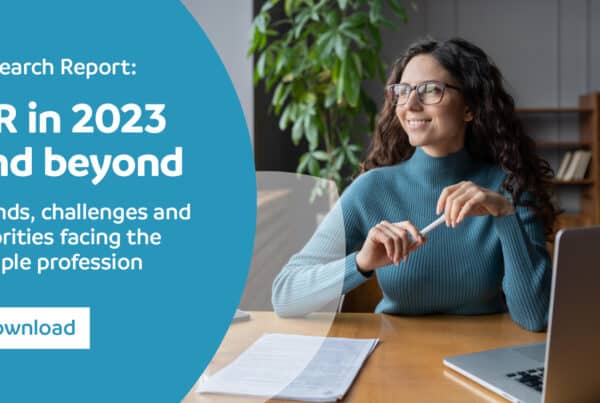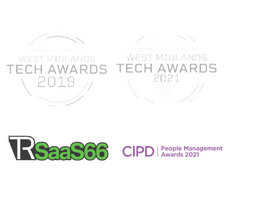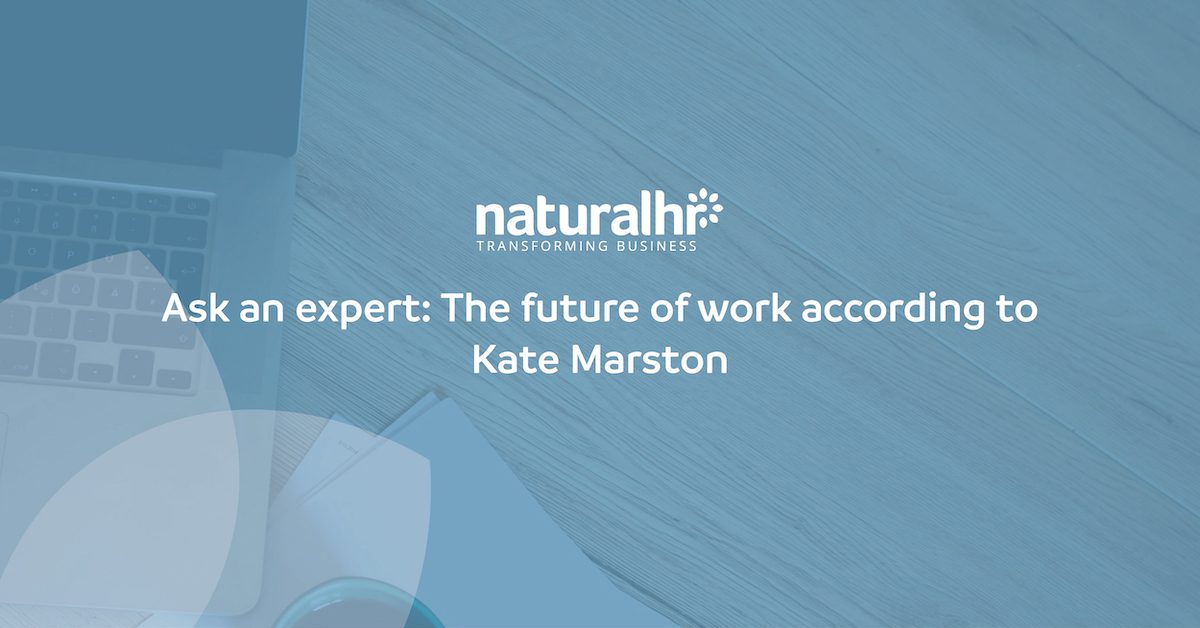
After one of the most turbulent years in this generation’s history, hopeful HR leaders embarked on a journey in 2021 seeking calmer waters for their profession, their businesses and importantly, their people.
While the world of work changed for good, the people profession had to evolve too. As businesses the world over experienced seismic shifts in perspective and priorities, HR teams led the charge in championing the human element of work to effectively balance productivity with employee engagement, satisfaction and happiness at a time that saw us more separated than ever.
2021 was a whirlwind for HR. It’s fair to say that after the life-changing events of 2020, the world of work has been transformed forever.
So, what does the future of work really look like? In a series of fascinating blog posts, we talk to some of the profession’s leading experts, voices and figureheads as they share what they believe the future of work looks like.
Kicking off the series, we are delighted to welcome Director of Mast People Support, Kate Marston to the Natural HR blog who will be sharing her take on the future of work.
Kate recently joined our HR Expert webinar series where she showcased how you can manage investigations, grievances and disciplinaries in the workplace whilst reducing the risks. If you want to find out more, watch Kate’s webinar on investigations.
Natural HR: Kate, what do you believe are the big trends that will change HR in the next 5 years?
Kate Marston: “Does anyone else feel like the pace of change in the working world is gathering momentum? An area that I believe will continue to pick up pace is the shifting attitude to the work/home balance and the need for flexible working.
“Pre-pandemic, a lot of businesses talked about having flexible working policies, but the reality was, most didn’t really buy into it. The pandemic changed that and the businesses who fared the best were those in a position to respond effectively and mobilise their teams working from home quickly. Others played catch up but got there – but how much productivity did they lose by not being able to respond straight away?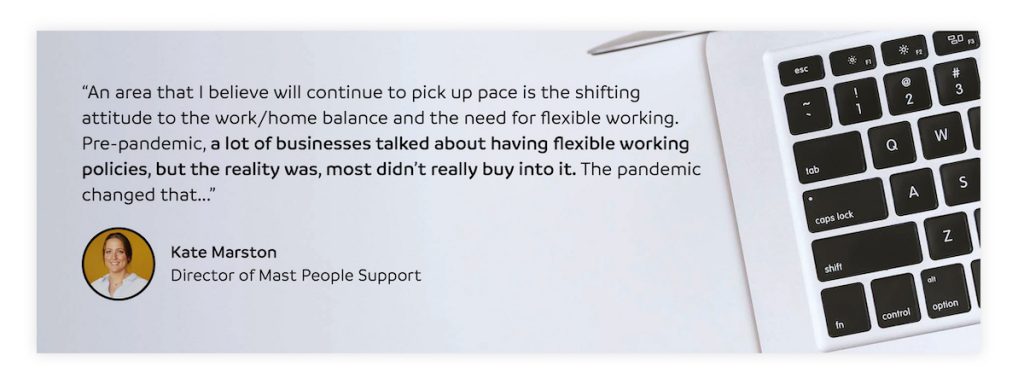
“But progress is coming and of note, in the UK a six-month pilot programme has been announced, which is being performed by 4 Day Week Global along with think tank Autonomy, the 4 Day Week UK campaign and researchers from Cambridge University, Oxford University and Boston College. The idea is that employees work for just 80% of their normal week at 100% of their pay to see what happens to productivity and employee welfare, the idea being that you will get full pay for 80% of the work but at 100% productivity.
“Another thing that I often think about is the pension gap and the rumour that state pensions won’t exist for people of my generation. Whilst women are negatively impacted by the pension gap (which may start to be rectified if flexible working becomes more acceptable), there is also the reality that anyone who hasn’t properly planned for their retirement, will need to work far longer than the current retirement aged generation.
“HR will need, at some stage, to think through the impacts of this on the working world and how organisations will need to adapt. Playing into this is the wellbeing of employees. I would love to start seeing the role of Chief Wellbeing Officer – does this exist already? We all need to look after ourselves to keep up – Chief Wellness Officer, we need you!”
NHR: What role will HR take in the future?
KM: “These changes in attitude and social norms will mean that HR will be adapting policies, helping to change the culture, and dealing with the multitude of employee relation issues that will come as a result – management behaviour and the odd bad egg will always be top of that list!
“I also think if more roles can be performed remotely, does this open up the talent pool and also mean employees are working from different parts of the world? How this will work from a tax perspective will also give HR and other departments a bit of work to do.
“Those in HR who head up more culture-focused organisations will be ahead of the game with this, and hopefully paving the way for the others – sharing best practice and what works and what doesn’t is something which I think makes HR special – the community feel amongst those in the industry is really strong.
“An example of someone leading the way and sharing her knowledge as she goes is Leanne Gardiner who is the Transformation Director at InHealth. I went to a talk Leanne hosted recently. She has a HR background moved into the transformation space and was talking about Machine Learning and AI.
“Whilst initially people are fearful of robots taking over jobs – particularly in the HR world, where lots of the entry level roles involve processes could be automated, it presents an opportunity to redefine being in HR and we are already seeing HR slowly shifting to people and culture. I believe culture as well as transformation, will become an even bigger part of HR’s remit.
“From my side, I also see that compliance – and I’m talking about the ethics sort of compliance that includes anti-bribery and corruption, conflicts of interest and the like, still present a big risk to organisations.
“I am the Executive Director at Women in Ethics and Compliance Global and I see so many discussions within this community where the Compliance Officers that are switched on are recognising that HR teams are instrumental to helping shaping the compliance culture. So many recognise this and partner closely with the HR team.
“Will we see the traditional HR roles shift to culture and ethics? I hope so.”
If you’d like to hear more from Kate, listen to her webinar on HR Investigations for free here.

Mast People Support was set up in 2020 by Kate Marston. Kate is a former Detective Sergeant from the Metropolitan Police who went on to lead the investigations function at a FTSE 100 luxury brand.
She is CIPD accredited and is in a fairly unique position when it comes to the support she can offer to organisations. She has a broad wealth of experience in law enforcement, retail, manufacturing, supply chain and corporate environments.
Kate is on the board of Women in Ethics and Compliance, an accredited platinum member of HR Independents and a member of the Association of Corporate Investigators. She is part of an initiative called 3markable and is a Mentor for The Girl’s Network.
Website: www.mastpeoplesupport.co.uk




